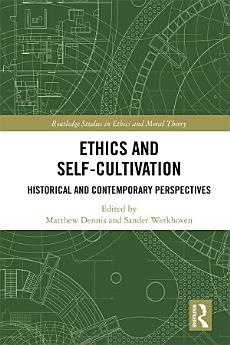Ethics and Self-Cultivation: Historical and Contemporary Perspectives
Matthew Dennis · Sander Werkhoven
Mar 2018 · Routledge
Ebook
246
Pages
family_home
Eligible
info
reportRatings and reviews aren’t verified Learn More
About this ebook
The aim of Ethics and Self-Cultivation is to establish and explore a new ‘cultivation of the self’ strand within contemporary moral philosophy. Although the revival of virtue ethics has helped reintroduce the eudaimonic tradition into mainstream philosophical debates, it has by and large been a revival of Aristotelian ethics combined with a modern preoccupation with standards for the moral rightness of actions. The essays comprising this volume offer a fresh approach to the eudaimonic tradition: instead of conditions for rightness of actions, it focuses on conceptions of human life that are best for the one living it. The first section of essays looks at the Hellenistic schools and the way they influenced modern thinkers like Spinoza, Kant, Nietzsche, Hadot, and Foucault in their thinking about self-cultivation. The second section offers contemporary perspectives on ethical self-cultivation by drawing on work in moral psychology, epistemology of self-knowledge, philosophy of mind, and meta-ethics.
About the author
Matthew Dennis is a doctoral researcher on the joint-PhD programme of the universities of Warwick (UK) and Monash (Australia), specialising in philosophical accounts of character-development and self-cultivation. His current work draws on French and German philosophy, exploring how these traditions have the resources to contribute to debates in Anglophone ethics. He has published on Nietzsche, Kant, and virtue theory, and is currently writing on the philosophy of technology.
Sander Werkhoven
is an Assistant Professor of Ethics at the Department of Philosophy at Utrecht University and a member of the Ethics Institute. His main research areas are the philosophy of medicine and psychiatry, normative ethics, and meta-ethics. He has published on theories of health and well-being in international journals, and has papers forthcoming on Nietzsche, Canguilhem, and Foucault.Rate this ebook
Tell us what you think.
Reading information
Smartphones and tablets
Install the Google Play Books app for Android and iPad/iPhone. It syncs automatically with your account and allows you to read online or offline wherever you are.
Laptops and computers
You can listen to audiobooks purchased on Google Play using your computer's web browser.
eReaders and other devices
To read on e-ink devices like Kobo eReaders, you'll need to download a file and transfer it to your device. Follow the detailed Help Center instructions to transfer the files to supported eReaders.




